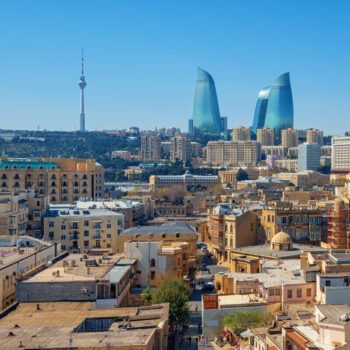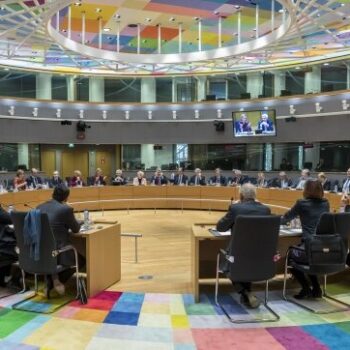After years of painstaking diplomatic effort and trust-building, the US finds itself center stage and with a historic opportunity to play the role of climate deal-maker in Paris.
US political commitment and investment in climate diplomacy during the Obama presidency has paid off in the form of positive and significant changes in position from other major economies. Top of this list is the landmark US-China agreement made last year which marked the first time China made an international commitment to peak its emissions. The US has signed other bilateral agreements on climate with major economies including Mexico, has pledged increased cooperation with India, and has been a key player in setting the climate agenda in other venues like the G7 and G20.
The reason behind this renewed US engagement is simple: the Obama Administration believes that a lasting and durable climate change regime is in America’s national interest. Better climate diplomacy will lead to progress on other foreign policy agendas, from conflict prevention to energy security to human rights. Superstorm Sandy was a wake-up call and a demonstration that it is not just developing countries that are vulnerable to climate impacts. And leaders in the public and private sector in the US have spoken often of the tremendous economic opportunity presented by the $17 trillion investment needed in the energy sector over the next two decades.
The US is an example of what’s possible when commitment to an issue comes from the top brass. President Obama and Secretary of State Kerry have shown as much leadership on climate change since 2012 as any other Head of State or Foreign Minister. Obama has firmly staked his legacy on climate, not only by putting it front and center in meetings with his counterparts but also domestically through the Presidential Climate Action Plan.
A long-time advocate of climate action, Secretary Kerry has been working to mainstream the issue throughout the State Department, and cooperate more strongly with the US Department of Defense and others on proactive climate diplomacy. Kerry recently announced the convening of a task force of senior government officials to determine how best to integrate climate and security analysis into overall foreign policy planning and priorities.
This top level commitment has been given a boost by action at the state and local level and by a growing list of private sector initiatives. Some of the largest state economies including California and New York have climate change legislation on the books. And American companies representing more than $2.5 trillion including Goldman Sachs, Microsoft, Apple, Walmart, Coca-Cola and Google have publicly supported a strong Paris outcome.[1] Recent polling has shown that over 70% of the American public thinks it is important to reach an agreement in Paris.[2]
Unlike five years ago in Copenhagen, the politics in Paris are good enough to establish a lasting climate regime. And the US has been constructive in trying to resolve tricky issues including the Long Term Goal. But the deal is not done yet. To secure Obama’s climate legacy the US can, and should, help unlock progress on several of the most difficult remaining issues.
First, the US should help ensure that there is strong language in the final agreement directing countries to implement their Intended National Determined Contributions (INDCs). This should be more than just a commitment regarding the preparation and communication of INDCs.
Second, the US should redouble its efforts in pushing for a strong ratchet mechanism that will allow countries to increase ambition in the short term. We know that the current pledges are not enough to deliver 1.5ºC or even 2ºC. But we also know that the price of renewable energy has fallen faster than almost anyone predicted and continued technological improvements will make it easier to meet mitigation pledges in the near future. Climate policy will also become more effective as countries gain experience. The final agreement should include a call to revisit pledges before 2020.
Finally, a positive US intervention could help to unlock an agreement on long term finance. Developing countries want assurances that developed countries will not only reach the promised goal of mobilizing $100bn in climate finance by 2020, but that funding will continue to increase after 2020. Leading up to Paris, long term finance has been one of the least well defined pieces of the puzzle. By presenting a credible plan that guarantees predictability, transparency, sustainability, and scale of finance over the long term, the US and other developed countries would prove they hear the concerns of the most vulnerable.
The US has a vested interest in seeing other major emitters improve upon their current targets and in helping vulnerable nations improve their own resilience. By setting up a framework in Paris that will allow countries to meet ambitious targets the US would be making a down payment on in its own future prosperity.
[1] https://www.whitehouse.gov/the-press-office/2015/07/27/fact-sheet-white-house-launches-american-business-act-climate-pledge [2] http://environment.yale.edu/climate-communication/article/americans-support-international-climate-agreement-paris/

